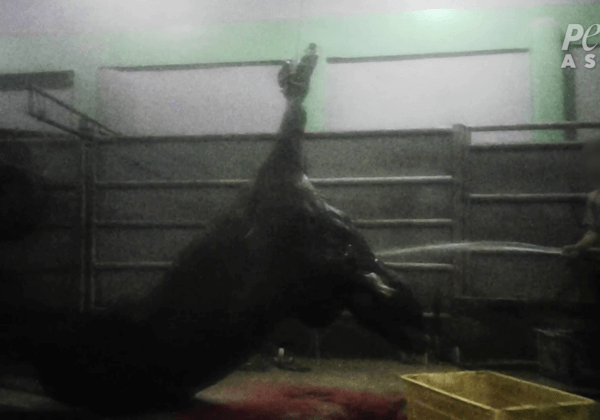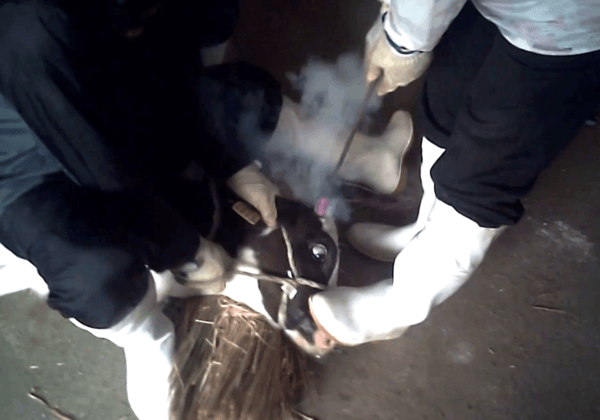Tiger Meat, Tiger Wine, and Bear Paw Served in Laos’ Restaurants
Earlier this month, a New York Times article reported that the Kings Romans Group—a company that operates a casino in the Golden Triangle Special Economic Zone in Laos—offers “expensive plates of bear paw, pangolin (an endangered scaly mammal) and sautéed tiger meat, which can be paired with tiger wine, a grain-based concoction in which the cats’ penises, bones or entire skeletons are soaked for months.” These dishes are available at the casino’s restaurants.
‘Animal Farms in Southeast Asia Fuel an Illegal Trade in Rare Wildlife’ by @RachelNuwer with my pics from Laos https://t.co/IoNibDm4la pic.twitter.com/PBIW7OTnxo
— Adam Dean (@adamjdean) June 6, 2017
In addition to a casino, hotels, and a cockfighting and bullfighting ring, Kings Romans also operates a zoo, which conservationists claim is really a wildlife farm that raises animals for slaughter.

Debbie Banks, a campaign leader at the Environmental Investigation Agency in London, told The New York Times that food, jewelry, and medicine made from tigers, elephants, rhinoceroses, bears, and leopards are all sold in the Golden Triangle Special Economic Zone. To the average tourist, the unkempt Kings Romans zoo is simply a tourist attraction that offers the chance to observe tigers and other animals. But in reality, the facility is suspected to be part of an industry that traffics animals that are illegally taken from their wild habitats and sold into the trade. Similar operations exist in other parts of Asia. According to The New York Times, roughly 700 tigers are being held captive on these farms in Laos and thousands more are housed elsewhere in Southeast Asia. Farms in China also house between 5,000 and 6,000 tigers. Although government officials have acknowledged the problem, little has been done to close the farms.
What Do Selfies Have to Do With It?
The tigers featured in vacationers’ selfies could be the same ones slaughtered and served at Southeast Asian restaurants. According to the New York Times article, the Kings Romans zoo in Laos “plays a significant role in perpetuating the illegal wildlife trade, swapping tigers with similar operations in Thailand and illegally butchering animals for their bones, meat and parts.” Karl Ammann, an investigative filmmaker, told The New York Times that tigers are often sold on the black market once they reach sexual maturity and can no longer be controlled. During their youth, many of them are held captive at tourist attractions where visitors pay to take selfies and play with the animals.
Thailand’s Tiger Temple, which has since closed, heavily sedated tigers so that tourists could touch and hug them or snap a selfie for a fee. The tigers’ movements were restricted, and the resident monks at the temple reportedly beat the frustrated animals when they refused to cooperate.
#Thailand‘s tiger temples are PRISONS for wild animals. Please, DON’T support this cruelty: https://t.co/tsIZI4HRgg pic.twitter.com/HUgrbdiL54
— PETA Asia (@PETAAsia) April 7, 2016
Although 137 tigers held captive at the Tiger Temple were seized and transferred to animal refuges around the country, thousands of other tigers around the world are still currently held in captivity and forced to perform for human entertainment.
What You Can Do
Animals are not ours to use for entertainment, nor are they photo props for selfies. Please never patronize any place that profits from exploiting animals, and leave wildlife in peace. If there’s any risk that your vacation experience is going to hurt or cause stress to an animal, it’s not worth it.








